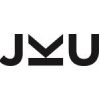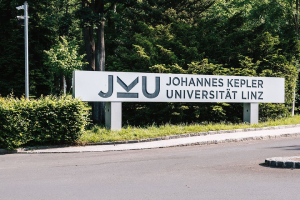Altenberger Str. 69, 4040 Linz, Austria
Career Counselling

Johannes Kepler University Linz is a highly ranked young University in the city of Linz in Austria. It is home to approximately 23,000 students.
Academic and research activities at the University are divided into 4 Faculties (Engineering and Natural Sciences, Business and Social Studies, Law, and Medicine) and 4 Schools (Linz Institute of Technology, Linz School of Education, Business School, and the Kurt Rothschild School of Economics and Statistics). In addition, the University incubates 13 businesses, hosts 11 Christian Doppler laboratories, and is...
| Establishment year | 1966 |
| Total Students | ~23,000 |
| International Students | ~3,680 |
| QS World University Rankings 2024 | =446 |
| Campus Size | N/A |
| Total Number of Campuses | 2 (Main; JKU Med Campus) |
| University Website | https://www.jku.at/en |
| No. of Schools and Divisions | 4 Faculties + 4 Schools |
| Nobel Prize Winner Alumni | 0 |
| No. of Education Programs | 76 (undergraduate + postgraduate) |
| Student to Faculty ratio | N/A |
Johannes Kepler University Linz offers undergraduate and postgraduate courses through 4 Faculties and 4 Schools, which are further subdivided into Departments and Institutes.
The four Schools of Johannes Kepler University Linz are:
International applicants to Johannes Kepler University Linz must satisfy these requirements:
International applicants to JKU must complete the following steps:
Domestic and international students of JKU must pay the Student Union fee of 21.20 Euros per semester (or 42.40 Euros per year); this amount is fixed by the Austrian Government. There is no waiver applicable to this fee, even if the student has a full tuition scholarship.
Students from Austria and the European Union do not have to pay any tuition fee for the whole expected duration of their degree program, plus two tolerance semesters. After this period, they pay half the regular tuition fees that students from outside the EU are subject to.
International students who are not from the European Union must pay tuition fees of 726.72 per semester. This is for students starting their degrees in 2022-23; the amount may go up slightly in subsequent years.
There are several excellent housing options located near the JKU campus, including 11 student dormitories. Depending on the type of accommodation chosen, and on the other monthly living costs (food, travel, personal items, and entertainment), students may spend between 500 and 1,000 Euros per month over and above the tuition fee.

Johannes Kepler University Linz has two campuses. The main campus opened in 1966, and hosts most of the academic and research facilities of the University. It also has several leisure areas and sports facilities, including soccer grounds, cafes, and indoor and outdoor areas where student clubs meet. The second location is the JKU Med Campus, where students of the Faculty of Medicine gain real life experience at the Kepler University Hospital. This campus opened in 2021.
The University Sports Institute organizes more than 150 courses every semester to allow each member of the JKU community (including graduates) to stay fit and active. The Kepler Hall has a state of the art fitness studio with dedicated cardio and weightlifting areas, and qualified personal trainers to assist new joinees. The courses can be divided into four main categories: classic sports (from football to tennis and volleyball to basketball), trendy sports, fitness courses, and recreational group exercise classes. Students of the University typically have to pay 22 Euros per course hour for this service.
USI also organizes several health, yoga, and self defense classes for its students and employees, in addition to eagerly awaited annual events like the JKU Marathon, which is run along the banks of the river Danube.
The University is a center of culture in the city of Linz, with a famous orchestra that performs in all the major cultural events of JKU and the city. Gifted musicians can apply to join the orchestra, while novices can join any of several student music clubs to learn how to play an instrument. There are many parks and green places on campus; these ensure that students can always have fun and relax with their friends.

Dining options at JKU are much better than at most other top ranked universities in the world. The University Cafeteria provides meals to over 10% of the students of JKU on a daily basis. JKU TeichWerk is a building next to the University Pond, it is both a restaurant and cafe, and a venue for concerts, student events, and cultural performances. Food at all restaurants on campus is ethically and sustainably sourced.
All members of the JKU community can access immediate medical and emergency support around the clock. There is a branch of the Red Cross on the University campus. In addition, there is a first responder system with trained paramedics who respond to any emergency call. The Department of Employee Protection and Safety works to provide a safe environment for staff and students.
The Circus of Knowledge is a unique initiative at JKU: through the medium of artistic performances, the Circus sparks discussions on important topics related to society, science, and academia.
JKU is a family friendly university: it offers flexible childcare options for both students and staff members who have small children. This ensures that students who are also parents can deal with their academic commitments while still having sufficient time to raise their children.
Given the relatively high cost of education and living in Austria, many students at JKU need scholarships to complete their education. The University maintains a list of all scholarships available to international students.
Merit scholarships are awarded to undergraduate and postgraduate students based on outstanding academic achievement. For Bachelor’s students, the level of academic excellence is gauged by the average GPA. For postgraduates, the quality of the thesis or dissertation is used to determine academic merit. The associated award amount is between 750 and 1,500 Euros per year. Applications must be submitted in October every year, and the minimum requirements and eligibility criteria can be found in the relevant University brochure.
Study Grants are meant for postgraduate students who are working on their dissertations; these cover incidental costs that are not covered by the University. The minimum and maximum amounts are 750 and 3,600 Euros respectively.
The Graduation Scholarship is awarded to Bachelor’s and Master’s students who are close to the completion of their respective degrees, and have only a few examinations left. It provides such students with financial support during the final phase of their study.
The MORE Scholarship for Refugees at JKU Linz is sponsored by Borealis AG, a company based in Vienna. Depending on the residence status of the student, a stipend between 110 and 330 Euros per month is paid to each awardee.
The Department of Gender & Diversity Management awards two scholarships to driven and talented female students studying various subjects within engineering and natural sciences.
There are many Government grants and local company scholarships available to students (both domestic and international) studying in Linz. A dynamically updated database of these grants can be found on the relevant Austrian education financial aid website.
